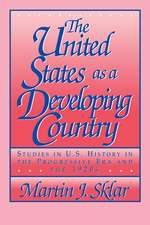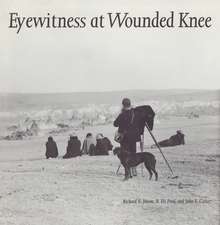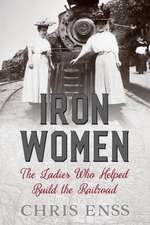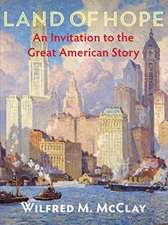How the South Won the Civil War: Oligarchy, Democracy, and the Continuing Fight for the Soul of America
Autor Heather Cox Richardsonen Limba Engleză Paperback – 12 mai 2022
| Toate formatele și edițiile | Preț | Express |
|---|---|---|
| Paperback (1) | 84.06 lei 10-16 zile | +28.80 lei 4-10 zile |
| Oxford University Press – 12 mai 2022 | 84.06 lei 10-16 zile | +28.80 lei 4-10 zile |
| Hardback (1) | 124.92 lei 10-16 zile | +44.70 lei 4-10 zile |
| Oxford University Press – 23 iul 2020 | 124.92 lei 10-16 zile | +44.70 lei 4-10 zile |
Preț: 84.06 lei
Preț vechi: 100.93 lei
-17% Nou
Puncte Express: 126
Preț estimativ în valută:
16.09€ • 16.75$ • 13.60£
16.09€ • 16.75$ • 13.60£
Carte disponibilă
Livrare economică 06-12 februarie
Livrare express 31 ianuarie-06 februarie pentru 38.79 lei
Preluare comenzi: 021 569.72.76
Specificații
ISBN-13: 9780197581797
ISBN-10: 019758179X
Pagini: 272
Ilustrații: 12 b/w images
Dimensiuni: 141 x 212 x 14 mm
Greutate: 0.29 kg
Editura: Oxford University Press
Colecția OUP USA
Locul publicării:New York, United States
ISBN-10: 019758179X
Pagini: 272
Ilustrații: 12 b/w images
Dimensiuni: 141 x 212 x 14 mm
Greutate: 0.29 kg
Editura: Oxford University Press
Colecția OUP USA
Locul publicării:New York, United States
Recenzii
Richardson's clear prose makes this book incredibly lively and accessible.
Heather Cox Richardson, a professor of history at Boston College, explains Goldwater's crusade and the trajectory of modern conservatism in her masterful How the South Won the Civil War: Oligarchy, Democracy, and the Continuing Fight for the Soul of America. A timely book, it sheds light on what was perhaps the most important political coalition of the 20th century.
Good revisionist history jars you, forces you to look at the past in a new way, and thereby transforms your view of the present. Heather Cox Richardson is a master of the genre, to the benefit of us all. Even those who take issue with her will be forced by this powerful book to come to terms with aspects of our past that we often just sweep under the rug of memory.
In a tour de force, Richardson exposes the philosophical connective tissue that runs from John C. Calhoun, to Barry Goldwater, to Donald Trump. It's not party, it's a complex ideology that has swaddled white supremacy and its political, legal, economic, and physical violence in the language of freedom and rugged individualism, and, in doing so, repeatedly slashed a series of self-inflicted wounds on American democracy.
The themes are broad and the implications mighty, but this isn't history from on high. Richardson uses a human lens to tell her tale, revealing the passions and power-plays that have sustained this battle for dominance. The end result is something rare and invaluable: a skilled work of history, deeply grounded in the past, that speaks loudly, clearly, and crucially to the present.
What the great books do is retell history in a way that creates a deepened and clarified connection between what was an what is. I love this book. For anyone seeking to understand how we got here, and where we're likely bound, this is a must-read.
If you want to understand this moment in American politics, here's a suggestion for you: It's the must-read book of the year.
Heather Cox Richardson's skill with connecting events into a cohesive narrative is on full display in this brilliant study...This book speaks to the heart of life in the United States and should be in every private, public, and school library.
... Richardson suggested that her most recent book, How the South Won the Civil War, was her "smartest". There is no doubt that it is, at the very least, her most ambitious.
A timely and vivid account of America's enduring struggle between democratic ideals and oligarchical demands -- from a stellar historian. The themes are broad and the implications mighty, but this isn't history from on high. Richardson uses a human lens to tell her tale, revealing the passions and power-plays that have sustained this battle for dominance. The end result is something rare and invaluable: a skilled work of history, deeply grounded in the past, that speaks loudly, clearly, and crucially to the present.
A thought-provoking study of the centuries-spanning battle between oligarchy and equality in America.
Though Richardson underemphasizes the prevalence of racism, sexism, and inequality in other parts of the country during and following the Civil War, she marshals a wealth of evidence to support the book's provocative title. Conservatives will cry foul, but liberal readers will be persuaded by this lucid jeremiad.
What the great books do is retell history in a way that creates a deepened and clarified connection between what was and what is. The brilliant historian Heather Cox Richardson has produced magic with this stunning work, which fuses the historian's craft to the storyteller's art. I love this book. For anyone seeking to understand how we got here, and where we're likely bound, this is a must-read.
Those interested in American history, politcis, and its historical development will find much to enjoy in this well-written, argued work.
Heather Cox Richardson, a professor of history at Boston College, explains Goldwater's crusade and the trajectory of modern conservatism in her masterful How the South Won the Civil War: Oligarchy, Democracy, and the Continuing Fight for the Soul of America. A timely book, it sheds light on what was perhaps the most important political coalition of the 20th century.
Good revisionist history jars you, forces you to look at the past in a new way, and thereby transforms your view of the present. Heather Cox Richardson is a master of the genre, to the benefit of us all. Even those who take issue with her will be forced by this powerful book to come to terms with aspects of our past that we often just sweep under the rug of memory.
In a tour de force, Richardson exposes the philosophical connective tissue that runs from John C. Calhoun, to Barry Goldwater, to Donald Trump. It's not party, it's a complex ideology that has swaddled white supremacy and its political, legal, economic, and physical violence in the language of freedom and rugged individualism, and, in doing so, repeatedly slashed a series of self-inflicted wounds on American democracy.
The themes are broad and the implications mighty, but this isn't history from on high. Richardson uses a human lens to tell her tale, revealing the passions and power-plays that have sustained this battle for dominance. The end result is something rare and invaluable: a skilled work of history, deeply grounded in the past, that speaks loudly, clearly, and crucially to the present.
What the great books do is retell history in a way that creates a deepened and clarified connection between what was an what is. I love this book. For anyone seeking to understand how we got here, and where we're likely bound, this is a must-read.
If you want to understand this moment in American politics, here's a suggestion for you: It's the must-read book of the year.
Heather Cox Richardson's skill with connecting events into a cohesive narrative is on full display in this brilliant study...This book speaks to the heart of life in the United States and should be in every private, public, and school library.
... Richardson suggested that her most recent book, How the South Won the Civil War, was her "smartest". There is no doubt that it is, at the very least, her most ambitious.
A timely and vivid account of America's enduring struggle between democratic ideals and oligarchical demands -- from a stellar historian. The themes are broad and the implications mighty, but this isn't history from on high. Richardson uses a human lens to tell her tale, revealing the passions and power-plays that have sustained this battle for dominance. The end result is something rare and invaluable: a skilled work of history, deeply grounded in the past, that speaks loudly, clearly, and crucially to the present.
A thought-provoking study of the centuries-spanning battle between oligarchy and equality in America.
Though Richardson underemphasizes the prevalence of racism, sexism, and inequality in other parts of the country during and following the Civil War, she marshals a wealth of evidence to support the book's provocative title. Conservatives will cry foul, but liberal readers will be persuaded by this lucid jeremiad.
What the great books do is retell history in a way that creates a deepened and clarified connection between what was and what is. The brilliant historian Heather Cox Richardson has produced magic with this stunning work, which fuses the historian's craft to the storyteller's art. I love this book. For anyone seeking to understand how we got here, and where we're likely bound, this is a must-read.
Those interested in American history, politcis, and its historical development will find much to enjoy in this well-written, argued work.
Notă biografică
Heather Cox Richardson is Professor of History at Boston College. Her previous works include West from Appomattox and To Make Men Free.






















